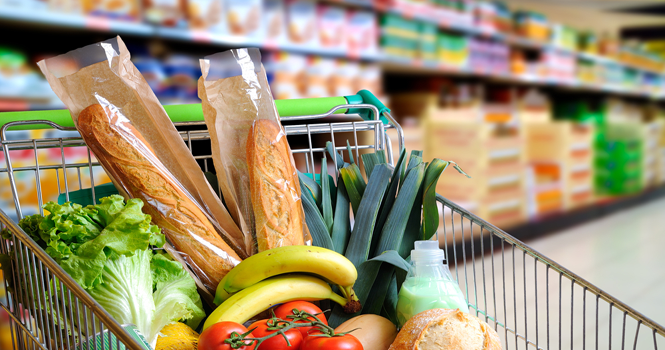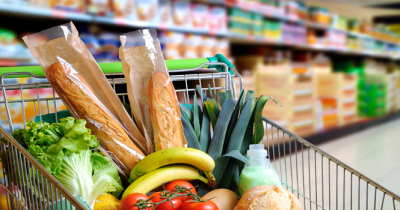As Ramadan approaches, two words summarize the state of consumers in grocery stores: "prices are fire." Since the beginning of the assault on Gaza and the disruption it has caused in supply chains through the Red Sea, traders have seized the opportunity to exploit the emerging situation for more profits. They are now threatening a new wave of price increases ranging from 2% to 15%, citing the cost of shipping goods via the Cape of Good Hope in Africa instead of passing through Bab el Mandeb. The share of this cost from total shipments is barely noticeable, but it has become clear that raising prices for profit is a common practice among traders both before and after the disruptions.
The newspaper "Al-Akhbar" reported that in 2023, food prices increased by 220% according to World Bank indicators, making it the second highest inflation rate globally after Venezuela, which recorded 173%. In January, food prices increased by between 7% to 13%, according to a report from the World Food Programme.
From the importers' perspective, the price increase is justified; the use of longer shipping routes due to the disruptions in the Red Sea associated with the Israeli aggression on Gaza has led to higher shipping and insurance costs for containers. According to Hani Bakhshali, head of the Food Importers Syndicate, the cost of a container has increased from $2,000 to $5,000, which will reflect a final price increase for imported goods between 2% and 15%. Bakhshali noted that they had warned about these increases two months ago, indicating that the Importers Association is "not responsible for any unjustified price hikes, especially for goods shipped via routes free of disruptions such as the Mediterranean Sea." He added, "We are not responsible for the crisis and have no decision-making power; the Ministry of Economy is provided with information, and it is the responsible party."
The variability in the rate of increase in food prices is linked to the types of goods imported and shipping costs. Bakhshali provides an example with the price of a rice container worth $20,000, considered a cheap commodity, where the price per kilogram ranges from 70 cents to $1.50. Therefore, a $2,000 increase in the container's cost reflects a 5% increase on the consumer price per kilogram. On the other hand, a tuna container is much more expensive, valued at $100,000, and the fixed increase in shipping costs will not raise the price of a single can by more than 2%, according to "Al-Akhbar."
The newspaper pointed out that the Ministry of Economy is clearly aware of the price increases. As soon as the disturbances in the Red Sea began, it conducted a tour of importers and found that the cost of imports from East Asia had become higher due to changes in ship routes and increased insurance prices, according to the General Director of the Ministry of Economy, Mohammad Abu Haidar. However, Abu Haidar believes that "the rate of increase should not exceed 8% according to shipping invoices," indicating that before the start of the fasting month, "the Ministry of Economy monitors prices of 50 essential commodities and internal supply chains from importers to supermarkets, in order to eliminate any excuse for arbitrary price increases, allowing the ministry to know that 'some traders import goods via routes that do not pass through the Red Sea, such as importing oil from Turkey.'" Therefore, in the event of unjustified increases, "the ministry will draft reports and send them to the judiciary." Abu Haidar does not rule out "the existence of traders hoping to raise prices and make additional profits in the coming days."
Interestingly, retail sellers, such as supermarkets, express a different view than the importers. Several supermarket owners interviewed by "Al-Akhbar" confirm that high prices are an unavoidable reality, even if the war on Gaza had not occurred. According to one, "The trader will not relinquish a single pound of profit," meaning that any cost will be passed onto the price, especially those imposed by the Social Security Administration regarding minimum wage declarations of no less than 20 million. They demand that "the increase be limited to transportation allowances only, as any wage increase equals a change in end-of-service benefits for workers, whereas transportation allowances are not included in the core wage." Concerning this cost, which some supermarket owners consider an additional burden to be passed on to consumers through final prices, one large store owner (who requested anonymity) stated that raising the minimum wage is essential, and paying $40 million monthly to workers will not impact prices but is necessary to stimulate consumption. The employer's profits will not be affected by the increase, as they can cover it from the difference in the dollar exchange rate alone.




